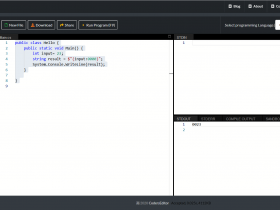C# Error CS1996 – Cannot await in the body of a lock statement
C# Error
CS1996 – Cannot await in the body of a lock statement
Reason for the Error & Solution
Cannot await in the body of a lock statement
Example
The following sample generates CS1996:
public class C
{
private readonly Dictionary<string, string> keyValuePairs = new();
public async Task<string> ReplaceValueAsync(string key, HttpClient httpClient)
{
lock (keyValuePairs)
{
var newValue = await httpClient.GetStringAsync(string.Empty);
if (keyValuePairs.ContainsKey(key)) keyValuePairs[key] = newValue;
else keyValuePairs.Add(key, newValue);
return newValue;
}
}
}
To correct this error
Asynchronous code within a lock statement block is hard to implement reliably and even harder to implement in a general sense. The C# compiler doesn’t support doing this to avoid emitting code that will be prone to deadlocks. Extracting the asynchronous code from the lock statement block will correct this error. For example:
public class C
{
private readonly Dictionary<string, string> keyValuePairs = new();
public async Task<string> ReplaceValueAsync(string key, HttpClient httpClient)
{
var newValue = await httpClient.GetStringAsync(string.Empty);
lock (keyValuePairs)
{
if (keyValuePairs.ContainsKey(key)) keyValuePairs[key] = newValue;
else keyValuePairs.Add(key, newValue);
return newValue;
}
}
}





Leave a Review